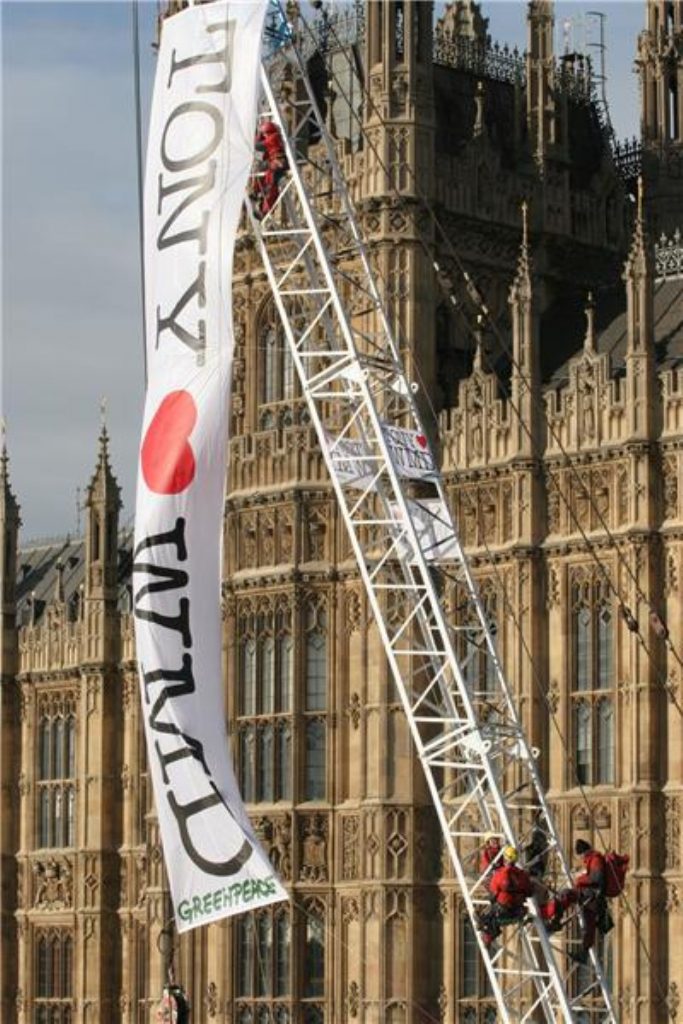Blair wins Trident vote against major rebellion
The House of Commons voted last night to renew Trident, in the first time MPs have taken a decision on the UK’s nuclear future.
However, against the second largest backbench rebellion of his leadership, prime minister Tony Blair only carried the vote with the support of the Conservatives.
Before the house divided at 7pm four junior members of the government had resigned in protest at Trident renewal, while other aides told Labour whips they would miss the vote in order to avoid voting against the government and resignation.
After more than six hours of debate, MPs voted 409 to 161, with a majority of 248 supporting the £20 billion plan to renew Trident. Earlier 413 MPs rejected an amendment to delay the decision, against 167 supporting a delay.


Some 88 Labour MPs voted against the principle of renewal and 95 voted to delay a decision, producing the biggest backbench rebellion since the Iraq war and the second most significant of Mr Blair’s premiership. Among the rebels were 16 former ministers, including four ex-cabinet members
It marked the third time the prime minister has needed Conservative support to pass government policy, following Iraq and trust schools.
Foreign secretary Margaret Beckett opened the debate, telling MPs: “Maintaining a nuclear deterrent remains a premium worth paying on an insurance policy for this nation.”
During the debate Chris Ruane, a parliamentary private secretary to Peter Hain, became the fourth junior aide to resign to vote against the government, joining Stephen Pound, Jim Devine and deputy leader of the house Nigel Griffiths.
Speaking after the debate, the defence minister Adam Ingram said some Labour rebels had given “disgraceful” speeches but it had been a “strong and healthy” debate overall.
Summing up, defence minister Des Browne said there were three types of objector; those who think nuclear weapons morally wrong, those who think they are no longer needed and those who think now is not the time to take the decision. None of these are compelling he argued.
Earlier in the day, Mr Blair had insisted it was “essential” work begins now to renew Trident, adding a new fleet will take 17 years to design and build.
All but two Conservative MPs voted to renew Trident now, after David Cameron said it was in the public interest.
Shadow defence secretary Liam Fox said a vote for Trident was a vote for the security of future generations, adding: “When the government takes the correct decisions for the future of Britain we’ll support them.”
Liberal Democrat leader Menzies Campbell, who voted to delay the decision, said a vote carried on Tory support would be humiliating for Mr Blair, who had attached his personal reputation to renewal.
SNP leader Alex Salmond warned the vote could harm Labour’s performance in the forthcoming Scottish election, with most Scottish MPs opposed to the plans.
Protesters gathered outside parliament yesterday and praised the rebel MPs, with the level of opposition greater than expected.
Louse Edge, head of Greenpeace’s disarmament campaign, said the government had failed to make the case to build more weapons of mass destruction.
She argued: “Blair is the ultimate global hypocrite. He demonises other states for trying to acquire nuclear weapons, yet has no shame in foisting a Cold War relic, capable of killing millions, on to the next generation.”









